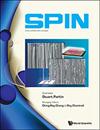Approximating Red-Blue Set Cover and Minimum Monotone Satisfying Assignment
IF 1.3
4区 物理与天体物理
Q4 PHYSICS, APPLIED
引用次数: 0
Abstract
We provide new approximation algorithms for the Red-Blue Set Cover and Circuit Minimum Monotone Satisfying Assignment (MMSA) problems. Our algorithm for Red-Blue Set Cover achieves $\tilde O(m^{1/3})$-approximation improving on the $\tilde O(m^{1/2})$-approximation due to Elkin and Peleg (where $m$ is the number of sets). Our approximation algorithm for MMSA$_t$ (for circuits of depth $t$) gives an $\tilde O(N^{1-\delta})$ approximation for $\delta = \frac{1}{3}2^{3-\lceil t/2\rceil}$, where $N$ is the number of gates and variables. No non-trivial approximation algorithms for MMSA$_t$ with $t\geq 4$ were previously known. We complement these results with lower bounds for these problems: For Red-Blue Set Cover, we provide a nearly approximation preserving reduction from Min $k$-Union that gives an $\tilde\Omega(m^{1/4 - \varepsilon})$ hardness under the Dense-vs-Random conjecture, while for MMSA we sketch a proof that an SDP relaxation strengthened by Sherali--Adams has an integrality gap of $N^{1-\varepsilon}$ where $\varepsilon \to 0$ as the circuit depth $t\to \infty$.近似红蓝集合覆盖和满足分配的最小单调
针对红蓝集合覆盖和电路最小单调满足赋值问题,提出了新的逼近算法。我们的Red-Blue Set Cover算法在Elkin和Peleg的$\tilde O(m^{1/2})$ -近似基础上实现了$\tilde O(m^{1/3})$ -近似的改进($m$是集合的数量)。我们的MMSA近似算法$_t$(对于深度为$t$的电路)给出了$\delta = \frac{1}{3}2^{3-\lceil t/2\rceil}$的$\tilde O(N^{1-\delta})$近似,其中$N$是门和变量的数量。以前已知的MMSA $_t$与$t\geq 4$的非平凡近似算法。我们用这些问题的下界来补充这些结果:对于红蓝集合覆盖,我们提供了一个从Min $k$ -Union的近似保留约简,它给出了稠密vs随机猜想下的$\tilde\Omega(m^{1/4 - \varepsilon})$硬度,而对于MMSA,我们概述了一个由Sherali—Adams加强的SDP松弛具有$N^{1-\varepsilon}$的完整性间隙的证明,其中$\varepsilon \to 0$为电路深度$t\to \infty$。
本文章由计算机程序翻译,如有差异,请以英文原文为准。
求助全文
约1分钟内获得全文
求助全文
来源期刊

Spin
Materials Science-Electronic, Optical and Magnetic Materials
CiteScore
2.10
自引率
11.10%
发文量
34
期刊介绍:
Spin electronics encompasses a multidisciplinary research effort involving magnetism, semiconductor electronics, materials science, chemistry and biology. SPIN aims to provide a forum for the presentation of research and review articles of interest to all researchers in the field.
The scope of the journal includes (but is not necessarily limited to) the following topics:
*Materials:
-Metals
-Heusler compounds
-Complex oxides: antiferromagnetic, ferromagnetic
-Dilute magnetic semiconductors
-Dilute magnetic oxides
-High performance and emerging magnetic materials
*Semiconductor electronics
*Nanodevices:
-Fabrication
-Characterization
*Spin injection
*Spin transport
*Spin transfer torque
*Spin torque oscillators
*Electrical control of magnetic properties
*Organic spintronics
*Optical phenomena and optoelectronic spin manipulation
*Applications and devices:
-Novel memories and logic devices
-Lab-on-a-chip
-Others
*Fundamental and interdisciplinary studies:
-Spin in low dimensional system
-Spin in medical sciences
-Spin in other fields
-Computational materials discovery
 求助内容:
求助内容: 应助结果提醒方式:
应助结果提醒方式:


